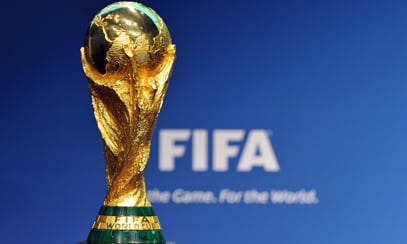The eyes of the world are converging on Brazil, as the 2014 World Cup kicks off on Thursday. Social networks will play a huge role in covering the month-long soccer tournament, giving brands and organizations an opportunity to get their messages out to the millions of people who will be tracking the games online.
Twitter and Facebook, for example, are reportedly rolling out hubs and features dedicated to the tournament.
To wit, Twitter is reviving what it calls “hashflags,” according to theverge.com. When you hashtag a three-letter country code, such as #FRA for France, the country’s flag will appear as an image right beside it within the text of the tweet. Depending on your products and services, that may give communicators the chance to extend their reach to other countries vis-à-vis the World Cup.
The microblogging service will also pull together tweets from major sources on the games.
Facebook, meanwhile, will host a hub called Trending World Cup, which will feature scores and highlights as well as a feed of posts from teams and players.
As the World Cup sucks up a lot of media bandwidth for the next four weeks, the games may prove to be prime time for so-called newsjacking, a phrase attributed to PR and marketing guru David Meerman Scott, in which companies inject their products, services or ideas into breaking news.
Depending on how the games unfold—whether its the emergence of the next Renaldo, a controversial call that results in some sort of protest, or a freakish play that wins (or loses) a game—there may be a direct or even circuitous way for companies to affiliate themselves with the games (or even a particular match).
With that in mind, here are a few PR tips on what to keep in mind if you take a shot at newsjacking, compliments of Scott Ziegler, social media strategist at Makovsky.
- Don’t react just because people online are clamoring for it. Before you make a decision, look at your brand’s objectives and personality to see if commenting is appropriate.
- Sleep on it. Despite the constant rush online, losing 12 hours “isn’t going to kill a brand’s reputation, and something might come up later,” Ziegler says. “When you wake up the next morning, things can change and it might reflect how you react.”
- Stay out of it, unless your brand can help. There may not be much return in tweeting about something that everybody’s in agreement about, Ziegler says. “It may make your brand look human, but I don’t think people are going to notice it if you don’t say anything,” he says.
Follow Scott Ziegler on Twitter: @szieg
Follow Matthew Schwartz on Twitter: @mpsjourno1

